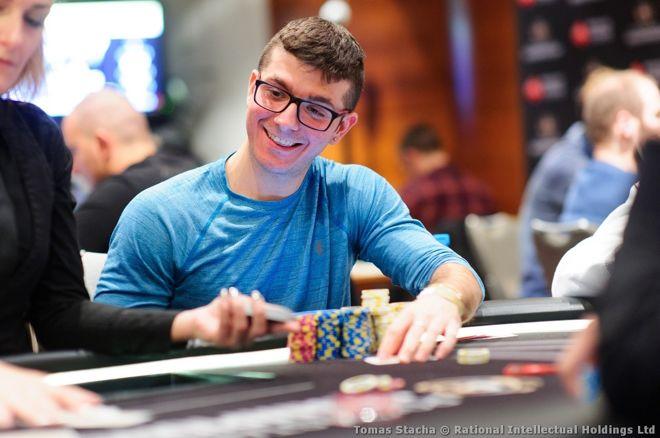From the beginner to the expert, everyone in poker has suffered from ‘Tilt’ at one point or another. One of the most debilitating impacts on the poker player’s game is the phenomenon where you enter a state of mind that would be considered angry, frustrated or overly emotional. Entering Tilt often happens after losing a hand when you were the favourite to win it, such a that river card to end your hopes of winning a big pot when you were a huge favourite to scoop a chip mountain. But understanding Tilt and learning about how to combat it in your game and take advantage of it happening to others is one of the great skills to master in the game of poker. Let’s take a deep breath and look at what we can do.
Why is Tilt Damaging?

Tilt is an incredibly damaging part of poker games because it leads to you making unwise decisions, not processing hands properly and risking your chips in spots where you would never give your opponent an edge. If you’ve not thought your action through thoroughly, then you’re unlikely to be making the right call, raise, fold or all-in. Often, Tilt can affect your judgement, so that you know you’re making the wrong decision, but make it anyway. As you can probably remember but certainly imagine, turning your play from optimal to risky is an extremely bad idea. You’re lowering yourself to praying for luck to help you out of holes, and it rarely does.
The trick to dealing with bullies on the playground is to stand up to them. If you do the same thing at the poker table, you’ll be less likely to get bullied repeatedly. This doesn’t mean you need to bet and raise into these bullies. Just call their bets more often. Let them know that you’re not going to be pushed around.
How to Spot the Signs of Tilt
Tilt can often be hard to spot because you are unwittingly masking it with something else. How often have you played a tournament while on a caffeine high or alcoholic low and then afterwards wondered why you weren’t successful. In any altered state, your own perception is not to be trusted, and this applies hugely to poker. You probably lost those hands because lack of sleep, drink or drugs (and caffeine can be a damaging one) or emotional problems you brought to the table yourself send you spiking at the fringes of tilt. It only take one bad beat to tip you over the edge.
If you know that you’re likely to be on tilt, the do something about it. Cut out the additives, sleep more, resolve whatever emotional issue you’re dealing with. And if you feel yourself overreacting to the hand you just lost (or even won) then that is a big sign that Tilt could be right around the next corner. Prepare evenly and calmly for every deal and you’ll be doing the best you can to stop yourself tilting. Impatience is a huge red flag for being ‘On Tilt’, so try to process hands painstakingly, even taking a little longer than previously might. Unless someone calls the clock on you, you’re making the right call.

What Are the Effects of Tilt?
Tilt is incredible damaging in the long-term, affecting confidence, your bankroll, and many excellent players have experienced self-doubt and a losing streak to match because of it. But even in the short-term, it’s worth avoiding as much as you possibly can. We’ve been at live tournament where players played “ten perfect hours” only to tilt in one hand and crash out. Cash game sessions can require a rebuy that skews an entire session or week’s profitability. So the effects are wide-ranging.
How to Get Off Tilt

Taking a break from playing is the best advice for Tilt, which can range from walking away from the tournament table to collect your thoughts or going on break a few minutes early to cashing out your losing chips and stepping out of the cash game session. In the long-term, this can mean taking a few days or weeks away from playing, knowing that when you return you’ll be in better shape. There are plenty of other things you can do while still at the table though, including regulating your breathing, distracting yourself with a game or book on your tablet, or simply going back to basics and trying to strip away any emotion from the next few hands.
What if You Can’t Help Getting Tilted?
As long as you recognise that Tilt is damaging, you will be able to rectify it. If it’s a part of your game that you regularly notice compensating for and that is affecting your ability to remain in profit, take steps to change. Fight or flight is a natural reaction to trauma, and in the scheme of playing poker, that’s exactly what a bad beat can feel like. Reminding yourself that luck will turn back in your favour is a healthier thought, and stepping away from the feeling of being angry (a naturally diminishing emotion) is the best way to act always. If you recognise that you’ve been fortunate in tilting someone else at the table, then you’ll know from your own weaknesses when in this state how to exploit it, but playing poker should be fun for all, and putting someone on tilt should never be your deliberate aim.
How To Deal Poker Instructions
How To Deal Poker Games
Concentrate on positive action next time you’re ‘On Tilt’, and limit the damage it does to your own game.
Keep up to date with all things partypoker!
Get all the latest partypoker updates from your favourite social media outlets. You can Follow us on Twitter and Like us on Facebook